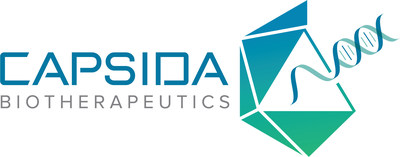Capsida Biotherapeutics (“Capsida”) today announced it will present new preclinical data showing the potential for its engineered adeno-associated virus (AAV) therapeutics to treat genetic epilepsy caused by mutations in the syntaxin-binding protein 1 (STXBP1) gene.
| Preclinical data show IV administration of a next-generation gene therapy produced dose-dependent replacement of syntaxin-binding protein 1 (STXBP1) throughout the brain, with efficacy predictive of clinical relevance lasting at least 12 months post therapeutic intervention Data to be showcased in an oral presentation at Epilepsy Therapies & Diagnostics Development Symposium today THOUSAND OAKS, Calif., June 2, 2023 /PRNewswire/ -- Capsida Biotherapeutics (“Capsida”) today announced it will present new preclinical data showing the potential for its engineered adeno-associated virus (AAV) therapeutics to treat genetic epilepsy caused by mutations in the syntaxin-binding protein 1 (STXBP1) gene. These preclinical data, generated in collaboration with Mingshan Xue, Ph.D., assistant professor of neuroscience, Baylor College of Medicine, demonstrated that intravenous (IV) administration of a next-generation capsid carrying STXBP1 cargo produced dose-dependent improvement across seizure, motor, and cognitive deficits in adult mice, lasting at least 12 months post therapeutic intervention. Furthermore, data on Capsida’s most recent generation of engineered capsids showed significantly enhanced brain-wide distribution required for treatment of genetic epilepsy due to STXBP1 mutation, while simultaneously de-targeting the liver, in non-human primates. Capsida will present these data in an oral presentation at the Epilepsy Therapies & Diagnostics Development Symposium being held May 31 to June 2, 2023, in Aventura, FL. Nicholas Flytzanis, Ph.D., chief research and innovation officer at Capsida, will present on June 2 at 10 a.m. ET, in a talk entitled, “Next-Gen AAV Therapeutics for Treatment of Genetic Epilepsy Caused by Mutations in the STXBP1 Gene.” “Treatment of this type of genetic epilepsy requires replacement of the STXBP1 gene throughout the brain in order to correct circuits associated with seizure, cognitive, and motor phenotypes,” said Susan Catalano, Ph.D., chief scientific officer of Capsida. “These new preclinical data showed that using engineered AAVs capable of efficiently crossing the blood-brain barrier and globally replacing the affected gene, while de-targeting tissues like the liver allowing for lower efficacious dosing, may be the key to brain-wide correction of this devastating disease.” “Capsida made the decision to focus our internal pipeline on diseases where there is high unmet need and the requirement to go beyond what is currently possible with wild type AAVs,” said Peter Anastasiou, Capsida’s chief executive officer. “We are excited to be presenting our preclinical results for what we believe is a first-in-class disease-modifying therapy for this significant genetic epilepsy disorder.” About Genetic Epilepsy due to STXBP1 Mutations About Capsida Biotherapeutics
SOURCE Capsida Biotherapeutics |





